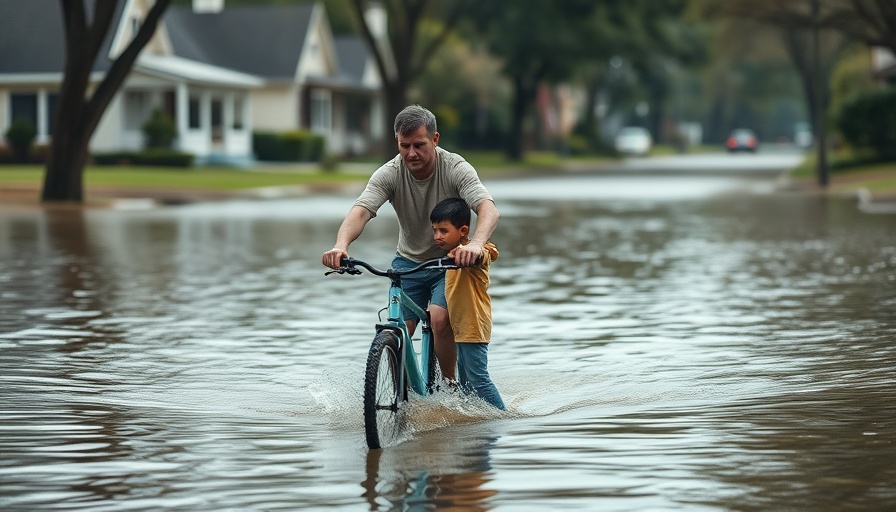
The Hidden Costs of Natural Disasters: A Global Concern
According to recent statements from UN Secretary-General António Guterres, the indirect financial impacts of disasters cost the global economy nearly $2 trillion annually. These staggering figures signal a stark reality: the true costs of disasters extend far beyond immediate damages. This pressing issue, particularly relevant in the context of Africa's complex socio-economic landscape, requires urgent attention from policymakers, investors, and global leaders.
Decoding the Rising Price Tag of Disasters
The alarming figures detailed in the Global Assessment Report by the UN Office for Disaster Risk Reduction indicate that the annual direct costs of disasters are already estimated at around $202 billion, with broader indirect costs inflating the figures into the trillions. This trend emphasizes how disasters like floods, droughts, and heatwaves contribute to ecosystem losses, social instability, and hinder economic growth. The burden of these costs predominantly falls on developing nations, amplifying already existing vulnerabilities.
Exploring Africa's Role in Mitigating Disaster Costs
Africa stands at the forefront of this challenge, where the interplay of conflict and natural disasters intensifies existing vulnerabilities. The recent acknowledgment by the UN of increased disaster severity highlights an urgent call for enhanced disaster risk financing and investments in building resilient infrastructures across the continent. For business leaders and investors, understanding the dynamics of the African economy against this backdrop is critical for making informed decisions that could mitigate these expenses.
Call to Action: Prioritize Resilience Investments
The call echoed by Guterres — to invest in resilience instead of solely responding to disasters — cannot be understated. Investing in climate-resilient infrastructure now will reduce the need for crisis-driven expenditures in the future. Public and private sectors must align their objectives to create more robust systems that can withstand natural calamities, particularly in Africa, a region frequently marked by geopolitical instability and economic disparities.
Final Thoughts: A Vision for Change
The rising tide of disaster-related costs poses a significant threat to global economic stability, particularly impacting Africa's growth prospects. By investing in resilience and proactive measures now, we can change the narrative — promoting not only recovery from disasters but also fostering opportunities for long-term development. The choice is ours: continue down a path of reactive spending or take decisive steps toward proactive resilience that promises a safer, more equitable future for all.
 Add Row
Add Row  Add
Add 


Write A Comment